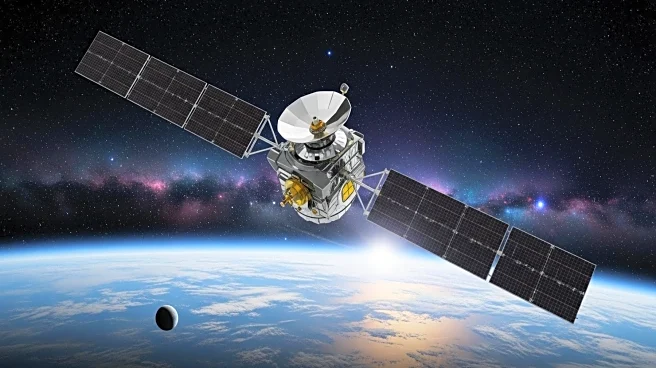What's Happening?
Congress is currently reviewing the National Defense Authorization Act (NDAA), a critical piece of legislation that serves as a vehicle for various priorities. This year, over 1,100 amendments have been submitted by House lawmakers, with several space-related proposals up for debate. These include considerations for expanding the Department of Defense's launch infrastructure to include commercial or state-run spaceports, utilizing satellites to track fentanyl trafficking in collaboration with the Department of Homeland Security and the Drug Enforcement Administration, and reporting on activities in the upper atmosphere and near-space environment. However, some amendments did not make it to the floor, such as the ORBITS Act aimed at cleaning up space debris and a proposal to prevent the transfer of the Space Shuttle Discovery from the Smithsonian National Air and Space Museum to Texas.
Why It's Important?
The inclusion of space-related amendments in the NDAA highlights the growing importance of space in national security and defense strategies. The potential expansion of launch infrastructure could enhance the U.S. military's capabilities in space, while tracking fentanyl trafficking via satellites represents an innovative approach to addressing drug smuggling. These developments could significantly impact defense operations and interagency collaborations. Additionally, the exclusion of certain amendments, like the ORBITS Act, underscores ongoing challenges in addressing space debris, which poses risks to both military and civilian space operations. The decisions made in this legislative process will shape the future of U.S. space policy and its role in national security.
What's Next?
As the NDAA moves forward, the debated amendments will undergo further scrutiny and potential modifications. Stakeholders, including defense officials and space industry leaders, will likely engage in discussions to influence the final outcomes. The decisions made could lead to new partnerships and initiatives, particularly in areas like satellite tracking and spaceport development. Additionally, the exclusion of certain amendments may prompt renewed efforts to address unresolved issues, such as space debris management, through alternative legislative or policy avenues.
Beyond the Headlines
The focus on space within the NDAA reflects broader trends in recognizing space as a strategic domain. This shift has implications for international relations, as cooperation and competition in space become increasingly significant. The legislative process also highlights the complexities of balancing national security priorities with scientific and commercial interests, raising questions about the future governance of space activities and the role of emerging technologies in defense strategies.









